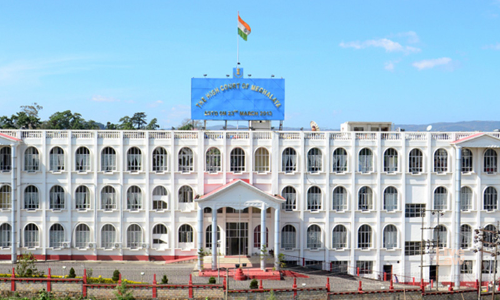Last Updated on May 1, 2024 by News Desk
The Meghalaya High Court Bench of Justice H.S. Thangkhiew has concluded that the arbitral tribunal’s mandate may only be extended by the High Court under Section 29A of the A&C Act if the tribunal was established in accordance with the Court’s directives under Section 11(6) of the Act.
The court decided that although it had instructed the parties’ nominee arbitrators to choose the presiding arbitrator, the High Court, not the Principal Civil Court, may extend the mandate of the tribunal that was established in accordance with those instructions.
Facts
Under Sections 11(4) and (6) of the A&C Act, the petitioner went to the High Court to request the appointment of the presiding arbitrator. The Court dismissed the motion and instructed the nominated arbitrators to choose a presiding arbitrator who would be chosen by both parties.
On April 21, 2022, the tribunal was established, and the procedures got underway. The parties mutually agreed to extend the arbitrator’s mandate to April 4, 2024, however even with this delay, the tribunal was unable to conclude the arbitral procedures on time.
The petitioner requested an extension of time for the arbitral award in an approach to the High Court made according to Section 29A(4).
Submissions by the Parties
The respondent did not object to the extension; however, it raised doubts about the petition’s maintainability in the High Court, arguing that since the presiding arbitrator was not chosen by the High Court, the petition should have been filed before the Principal Civil Court in accordance with Section 2((1)e) of the Act.
Analysis by the Court
The presiding arbitrator was appointed by the nominee arbitrators exclusively on the High Court’s instructions, the Court noted, even though the High Court did not select the arbitrator directly under Section 11(6).
The arbitral tribunal’s mandate can only be extended by the High Court under Section 29A of the A&C Act, the Court said, if the tribunal was established in accordance with the orders given by the Court under Section 11(6) of the Act.
The court decided that although it had instructed the parties’ nominee arbitrators to choose the presiding arbitrator, the High Court, not the Principal Civil Court, may extend the mandate of the tribunal that was established in accordance with those instructions.
The Court cited the ruling in Chief Engineer (NH) PWD (Roads) vs. M/s BSC&C, wherein the Coordinate Bench determined that when an arbitrator is appointed by the High Court under Section 11, an application under Section 29A may only be filed with the High Court; if the application is granted by the Principal Civil Court, this would create an unusual circumstance in which a lower court could replace the High Court’s appointment of an arbitrator.
As a result, the Court decided not to consider the objection and named the arbitrator.
Case Title: BSCPL Infrastructure Limited v. The Addl. Chief Engineer, PWD(Roads)
Written By: Nikita Shankar @nikitaashankar

















